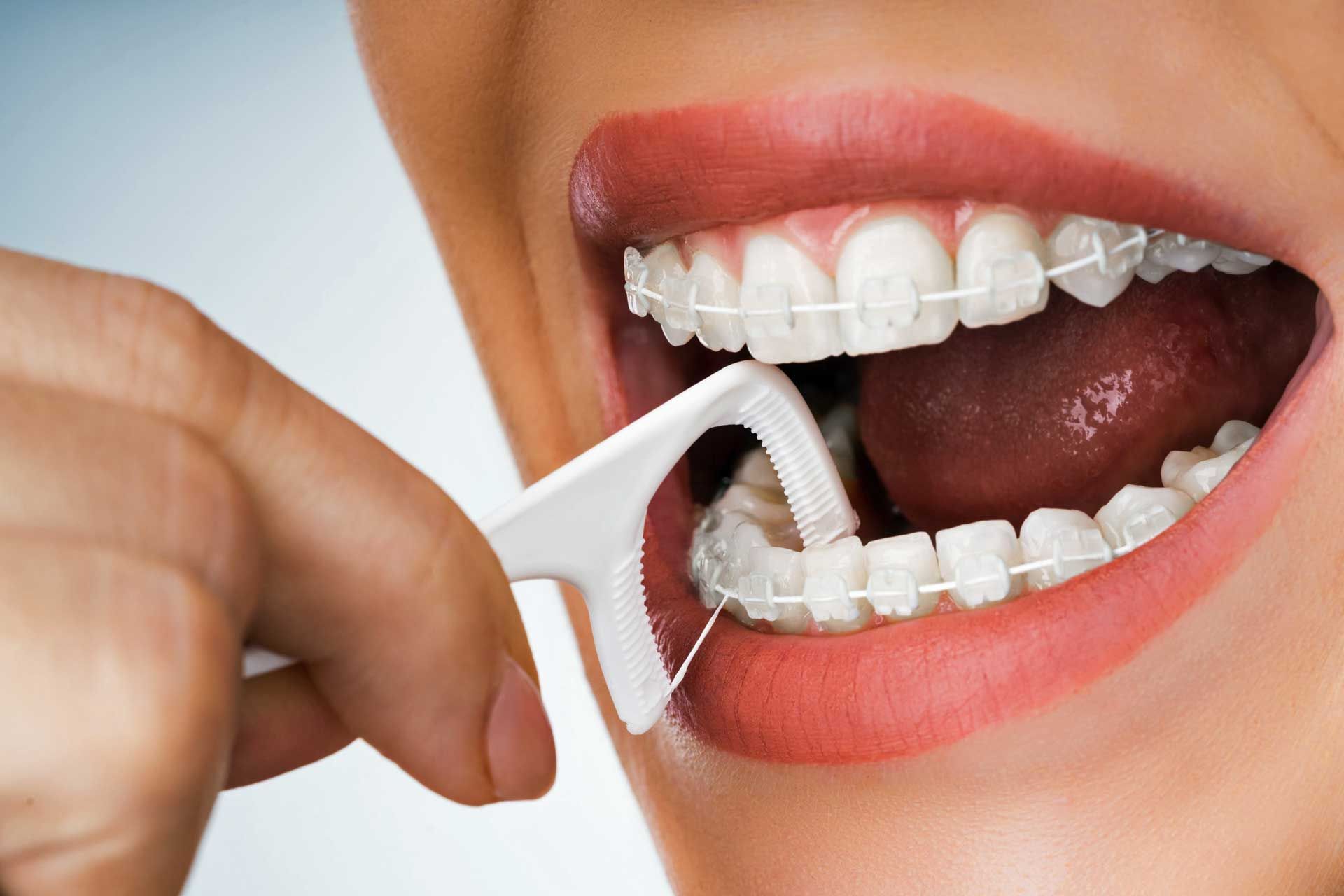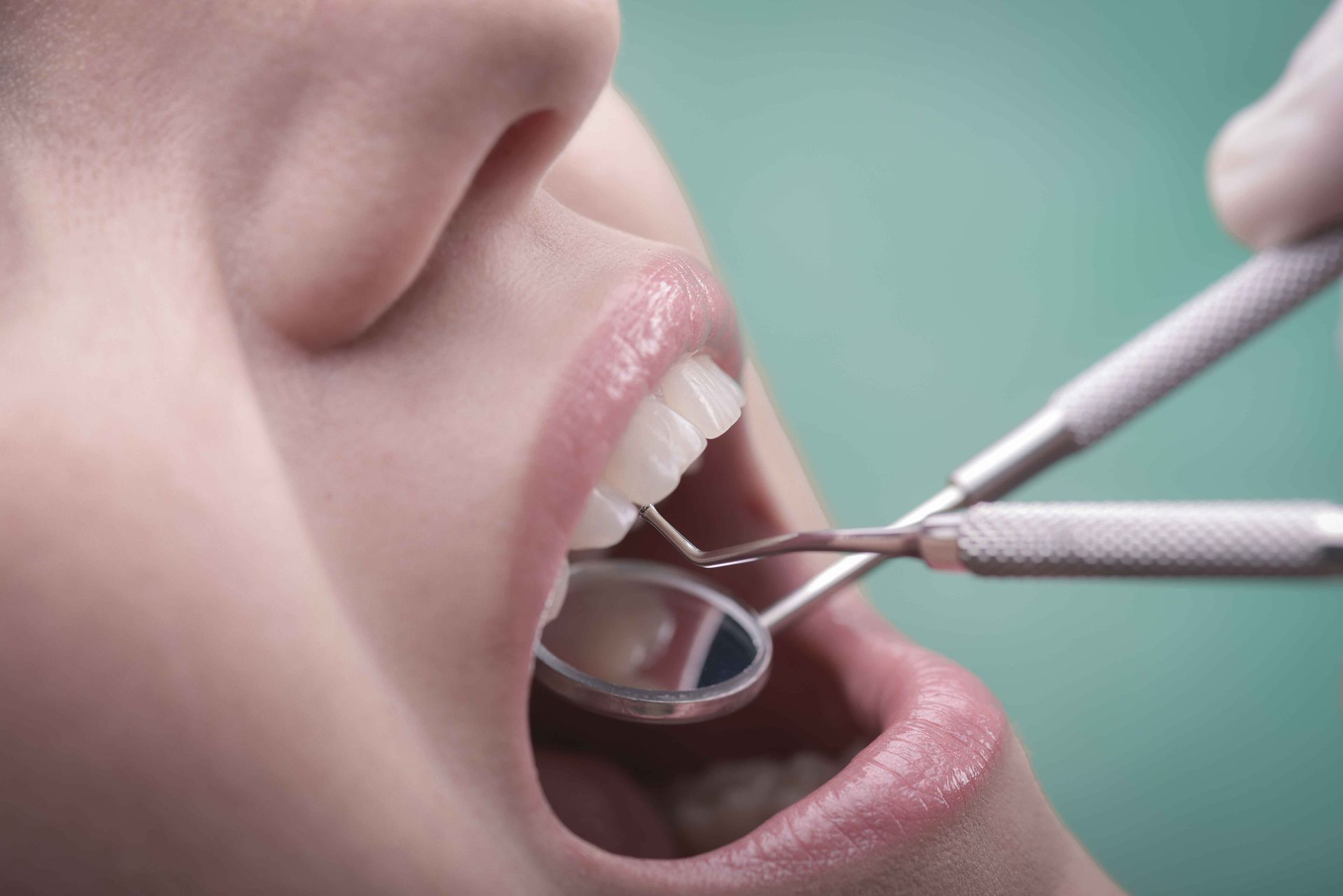Complex Cases
Some people might feel like they are "dentally challenged" or think that there is no hope for them. However, Dr. Knudson has a lot of experience and works with other top-notch dental specialists who can help with disorders of the jaw, extensive bone loss, gum recession from periodontal disease, placing dental implants, and re-treating previously placed dental reconstructions. No matter what your situation is, we can help you.
Unstable TMJs

Temporomandibular Joint (TMJ) disorders can be caused by different things, like trauma, an improper bite, arthritis or wear and tear. Common symptoms that come with these disorders are jaw tenderness, headaches, earaches and facial pain. Even though these disorders are treatable, they're tough to diagnose because of how many different things can cause them.
Periodontal disease, gum disease and periodontitis
Periodontal disease, also known as gum disease, is a common condition in which the gums and other structures that support the teeth become inflamed and infected. It is caused by a buildup of plaque.
If left untreated, periodontitis can lead to tooth loss and other serious health problems, such as heart disease, stroke, and diabetes.
Sores, oral and gum infections

Sores, oral, and gum infections are common dental problems that can cause pain, discomfort, and other complications. Some of the most common types of sores and infections include canker sores, Cold sores, thrush, gingivitis, and periodontitis.
Treatment for sores and oral and gum infections depends on the cause and severity of the condition.
Tooth decay and tooth damage
Tooth decay, also known as dental caries, is caused by a buildup of plaque on the teeth, which produces acid that can erode the tooth enamel. This can lead to cavities, which are small holes in the teeth.
Symptoms of tooth decay include tooth sensitivity, pain when eating or drinking, and visible pits or holes in the teeth.
Multiple Teeth Missing

Missing multiple teeth can have a significant impact on a person's ability to eat, speak, and smile confidently.
The best option for replacing multiple missing teeth will depend on several factors, including the location and number of missing teeth, the health of the remaining teeth and gums, and the patient's preferences and budget.
Habitual Bruxism
Habitual bruxism, also known as teeth grinding or clenching, is a common condition that can lead to a variety of dental problems, including tooth wear, jaw pain, and headaches. Bruxism can occur during the day or night and is often associated with stress or anxiety.
Treatment for bruxism will depend on the cause and severity of the condition.
Deep Overbite

A deep bite, also known as a deep overbite, is a dental condition where the upper front teeth overlap significantly with the lower front teeth when the jaw is closed. This condition can be caused by a variety of factors, including genetics, abnormal jaw growth, or missing teeth.
A deep bite can lead to more serious dental problems and may worsen over time.
Mobile Teeth
Mobile teeth or loose teeth can be a sign of several dental problems. This condition is commonly caused by gum disease, which is an infection that affects the tissues surrounding the teeth. It can lead to bone loss and weakening of the tooth support structures.
Regular dental check-ups and cleanings are essential for early mobile teeth detection.
Large Pores and Cores

A core crown, also known as a dental core buildup, is a procedure that involves the placement of a foundation material in a tooth that has been significantly damaged by decay or trauma.
The foundation material, typically a composite resin or amalgam, is used to build up the tooth structure and provide a stable base for a dental crown.





